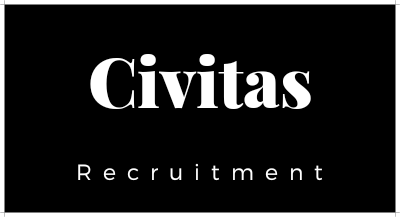Adapting to Skill-Based Hiring in the Charity Sector
The job market is evolving, and so are hiring practices. More and more organisations, including those in the charity sector, are shifting their focus from traditional qualifications to a skill-based approach when recruiting new talent. This means, hiring managers care less about degrees and more about what candidates can actually do.
Let’s explore why this change is happening and how your organisation, whether it’s a charity recruitment agency or a non-profit, can benefit from it.
Why Skill-Based Hiring is on the Rise
Traditional hiring practices have long relied on degrees and certifications as primary indicators of a candidate’s potential. However, as the job market evolves, these credentials are no longer seen as the sole markers of capability, especially in a world where individuals are replete with opportunities to teach themselves and develop their own skills outside of a classroom. (Source)
Organisations are now placing greater importance on what candidates can actually do rather than what their qualifications suggest they might be able to do.
Here are a few reasons why skill-based hiring is becoming the norm:
- Technological Change: With new tools and platforms emerging all the time, organisations need people who can quickly adapt and learn. For example, someone who completed a coding bootcamp and built several successful projects might be a better fit than a computer science graduate with no real-world experience.
- Diverse Talent Pools: By focusing on an individual’s unique skills, companies can tap into a wider range of candidates, including those who may not have followed a traditional education path but have the necessary abilities to excel in a role.
- Real-World Experience: Practical experience often predicts job success better than academic achievements. For example, someone who has volunteered extensively and managed successful community projects might be a better fit than someone with a degree in social work but no hands-on experience.
Key Elements of Skill-Based Hiring
Competency Assessments
We’re seeing more organisations use practical tests and simulations to assess candidates during the hiring stage. This helps hiring managers see how well candidates can perform the tasks required for the job.
Behavioural Interviews
These interviews focus on how candidates have handled past situations, helping organisations understand their problem-solving skills and adaptability, especially in the moment.
Learning Potential
In today’s fast-paced world, the ability to learn and grow is crucial. Organisations value candidates who show a willingness and capacity to develop new skills.
Benefits of Skill-Based Hiring
Increased Performance and Productivity, Decreased Onboarding Time
When candidates are hired for their skills, as opposed to arbitrary markers on a job description, they’re likely to perform better and be more productive. Employees will hit the ground running and contribute more effectively from day one, as well as requiring less onboarding time since they already possess many of the practical skills necessary to do the job.
Increased Diversity and Inclusion while Reducing Bias
This approach promotes diversity by removing barriers that might prevent talented candidates from being considered. It creates a more inclusive workforce with varied perspectives, beyond the bounds of traditional university or college degrees. It also helps reduce unconscious bias by focusing on individual skills rather than subjective factors such as age, education level, socio-economic background, and other traditional criteria.
Lower Turnover Rates
When employees are well-matched to their jobs, they tend to be more satisfied and engaged, leading to lower turnover rates and more stability for organisations. Starting from the hiring process, employees motivated by their skill set and role alignment are more likely to stay and keep improving the organisation. (Source)
How Your Organisation Can Benefit
By adopting a skill-based hiring approach, Charities can tap into a broader and more diverse talent pool, reduce bias in the hiring process, and enhance employee satisfaction and retention. Focusing on practical skills and real-world experience allows you to identify candidates who can contribute immediately and grow with your organisation.
Prepare for skill-based hiring by developing robust competency assessments, incorporating behavioural interviews, and prioritising candidates’ learning potential. This approach is particularly effective in key areas such as fundraising, marketing, and communications, where practical skills and creativity can significantly impact your mission’s success. By doing so, you’ll position your organisation to thrive in today’s dynamic job market, attracting top talent who are ready to make a meaningful impact from day one.
If you are a charity or hiring manager looking to build skills-based interview techniques into your hiring process, don’t hesitate to reach out via our contact page. We specialise in helping organisations implement effective recruitment strategies that focus on practical skills and real-world experience.
Related posts
Internal Mobility: Why the Best Talent Strategy is Looking Right at You – April 2025
Let’s stop pretending the war for talent is just outside our walls. It’s not. It’s also right inside—among the people who already know our systems, our culture, and our customers. In 2025, the smartest hiring strategy isn’t external recruitment. It’s internal mobility. The talent you’re chasing? You may already employ them. You just haven’t asked…
Why You Should Avoid Over-Relying on AI for Writing Cover Letters and Screening – April 2025
In today’s digital age, AI has become an indispensable tool for job seekers. From crafting CV’s to researching companies, it offers a faster and more streamlined approach to navigating the job search. But when it comes to writing cover letters or answering screening questions, there’s a significant risk in over-relying on AI. Although these tools…
Skills Based Hiring – May 2024
Adapting to Skill-Based Hiring in the Charity Sector The job market is evolving, and so are hiring practices. More and more organisations, including those in the charity sector, are shifting their focus from traditional qualifications to a skill-based approach when recruiting new talent. This means, hiring managers care less about degrees and more about what…
How to draft an authentic and appealing job description – September 2023
The perfect Job Description doesn’t exist…or does it? The first step of successfully filling a role is to write a Job Description, or JD – this will be posted on the charity’s website, featured in job adverts, or possibly sent to you by your recruiter. The aim of the JD is to sell the role…
Five practical tips to help you prepare for your next interview – July 2023
Five practical tips to help you prepare for your next interview Whether you love them or hate them, interviews are a necessary step in advancing your career. And, regardless of which side of the fence you sit on, or how much interview experience you have, there are some easy wins that can take you from…
The Law of Attraction: How to recruit and retain high-calibre talent – July 2023
It’s no surprise that, in recent years, UK businesses are experiencing difficulty recruiting employees with relevant skills. With a growing number of vacancies and, simultaneously, a shortage of suitable candidates to fill them, we understand the anxiety that many small firms are facing in the current job market. We have seen this first-hand in the…





